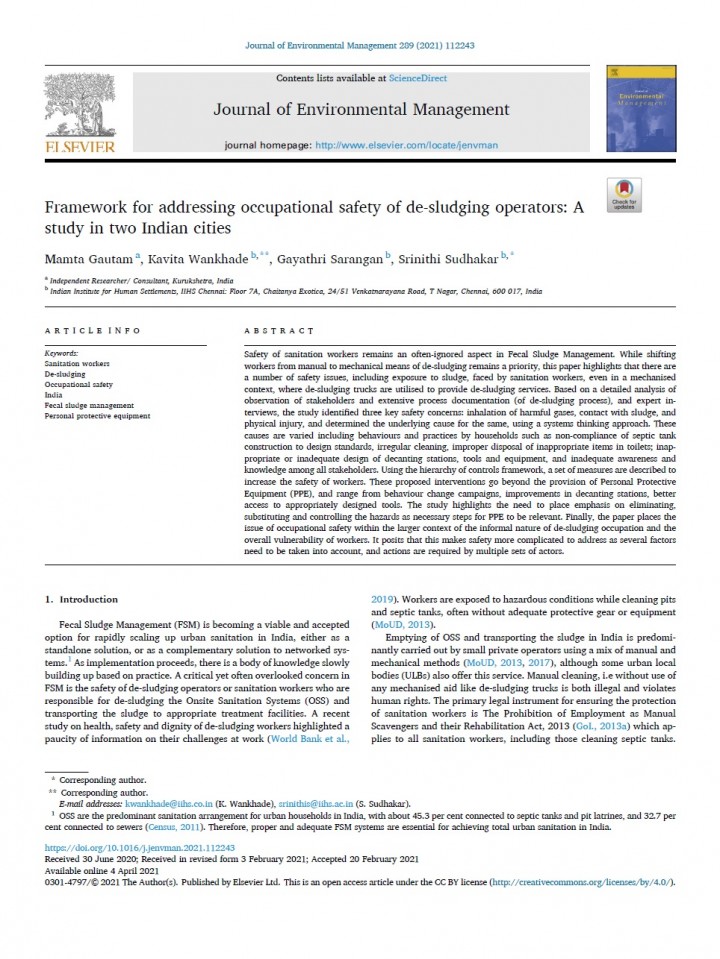Framework for addressing occupational safety of de-sludging operators: A study in two Indian cities
Gautam, M., Wankhade, K., Sarangan, G., Sudhakar, S. (2021)

Published in: 2021
Pages: 10
Publisher:
Journal of Environmental Management
Author:
Gautam, M., Wankhade, K., Sarangan, G., Sudhakar, S.
Uploaded by:
Theodore Sam
Partner profile:
Indian Institute for Human Settlements
1412 Views
30 Downloads
Location of library entry
Safety of sanitation workers remains an often-ignored aspect in Fecal Sludge Management. While shifting workers from manual to mechanical means of de-sludging remains a priority, this paper highlights that there are a number of safety issues, including exposure to sludge, faced by sanitation workers, even in a mechanised context, where de-sludging trucks are utilised to provide de-sludging services. Based on a detailed analysis of observation of stakeholders and extensive process documentation (of de-sludging process), and expert interviews, the study identified three key safety concerns: inhalation of harmful gases, contact with sludge, and physical injury, and determined the underlying cause for the same, using a systems thinking approach. These causes are varied including behaviours and practices by households such as non-compliance of septic tank construction to design standards, irregular cleaning, improper disposal of inappropriate items in toilets; inappropriate or inadequate design of decanting stations, tools and equipment, and inadequate awareness and knowledge among all stakeholders. Using the hierarchy of controls framework, a set of measures are described to increase the safety of workers. These proposed interventions go beyond the provision of Personal Protective Equipment (PPE), and range from behaviour change campaigns, improvements in decanting stations, better access to appropriately designed tools. The study highlights the need to place emphasis on eliminating, substituting and controlling the hazards as necessary steps for PPE to be relevant. Finally, the paper places the issue of occupational safety within the larger context of the informal nature of de-sludging occupation and the overall vulnerability of workers. It posits that this makes safety more complicated to address as several factors need to be taken into account, and actions are required by multiple sets of actors.
Bibliographic information
Gautam, M., Wankhade, K., Sarangan, G., Sudhakar, S. (2021). Framework for addressing occupational safety of de-sludging operators: A study in two Indian cities. Journal of Environmental Management
Filter tags
Case studies in other formats East Asia & Pacific English Faecal sludge treatment processes Import to Sanitation Workers Platform Research publications















